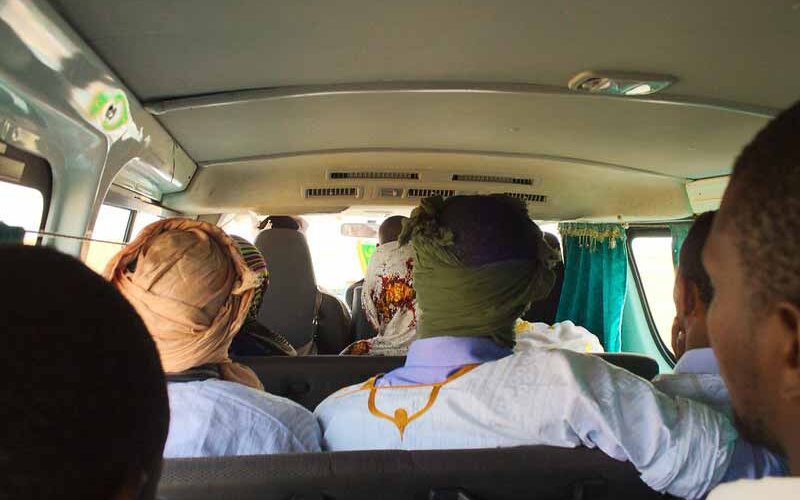EMELINE WUILBERCQ
Every day, Tarekegn Medhin wakes up at dawn to search for a conductor job at one of Addis Ababa’s frenetic minibus depots.
Despite lousy working conditions and chronic shoulder pain – it takes heft to manoeuvre the bus doors at speed – the nine-year-old lines up in hope of any driver offering him a shift.
All for 100 birr ($2.78) a day.
But since April, when Ethiopia ordered operators to cut passenger numbers to curb the new coronavirus, it has become increasingly hard for the child conductors to make ends meet.
“Life is not comfortable. I spend my earnings within a day and when there is no work, I starve,” Tarekegn told the Thomson Reuters Foundation.
Tarekegn, who left his village in southern Ethiopia when all schools shut in March, is one of countless migrant boys working as minibus assistants in cities across Ethiopia.
Locally known as ‘weyala’ or ‘redat’, they are a feature of every cityscape – yelling destinations at crowds of queuing commuters, then squeezing themselves into the blue and white buses to collect as many fares as possible.
The pandemic has left such informal sector workers, often children like Tarekegn, more vulnerable as their income drops even as work exposes them to COVID-19, said academics.
“They do not have the luxury of staying at home and reducing activities since these are necessary for survival,” said Alula Pankhurst, Ethiopia country director of Young Lives, an international study of childhood poverty.
Ethiopia has recorded more than 45,220 coronavirus cases and 725 deaths. Experts say the crisis has made precarious jobs worse, as people can be more suspicious of marginalised communities for fear of catching the virus.
“The risks they face – including from theft, beating, accidents and health – may well be heightened under COVID-19,” Alula said.
The ministry of transport did not reply to requests for comment on the child conductors.
TOO YOUNG
Despite rapid economic growth in the past decade, inequality is stark in Ethiopia as a growing number of children migrate from rural to urban areas in search of opportunities, driven by poverty, neglect or the influence of peers, charities said.
It is common to see children working on minibuses, as peddlers, shining shoes and selling lottery tickets, as child labour is deeply ingrained in daily life, according to Girmachew Adugna, a child migration specialist.
More than 150 million children are engaged in child labour globally with about half carrying out dangerous work in sectors such as construction, agriculture, mining and manufacturing.
Ethiopia has ratified key international conventions on child labour, but 42.7% of Ethiopian boys and girls aged from five to 17 work, according to a 2015 national survey.
“Poverty is key here as many parents urge their children to engage in work, raise income for the family. This could be at the expense of the children’s well-being,” Girmachew said, describing migration as a “household strategy”.
LESSER OF TWO EVILS
There is no data on the number of boys who work on the estimated 6,000 minibuses operating in Addis Ababa, and their risky lifestyle has never before come on the radar, said Anania Admasu, director of children’s charity CHADET.
“When the problem is huge, people don’t want to touch it,” Anania told the Thomson Reuters Foundation.
Conductors say confrontation with passengers is a hazard of the job and even the promised earnings depend on a driver’s good faith, said academics.
Takele Begene said some of his fellow drivers had opted to do the job themselves – to make up for lower passenger numbers – so some boys now had to beg at restaurants for leftovers.
Abebaw Kassa, coordinator of the Addis Ababa minibus taxi drivers’ association, said the group lobbied for assistants and had also urged drivers to continue hiring despite the crisis.
“We believe these kids should go to school instead (but labour) is the lesser of two evils … We are saving them from a lot of addictions,” he said, citing the dangers of street life.
“While working as assistants, they can make money. Their life can be changed for the better,” he told the Thomson Reuters Foundation, saying some even save enough to get a driving permit and work their way up the social ladder.
But Tarekegn says he would far rather go home, that he feels tired of living hand to mouth.
“I will stay here until I get (enough) money,” Tarekegn said. “Life is better in the countryside.
“I want to finish school.” – Thomson Reuters Foundation.














